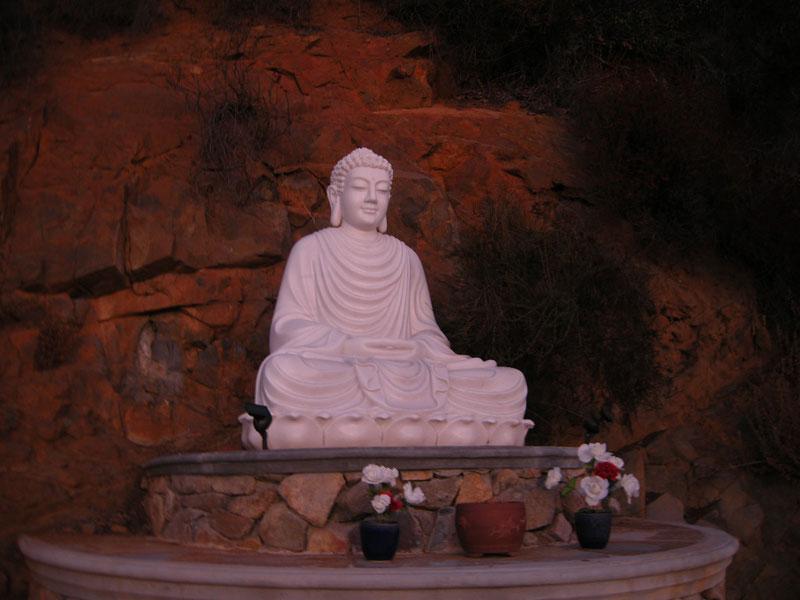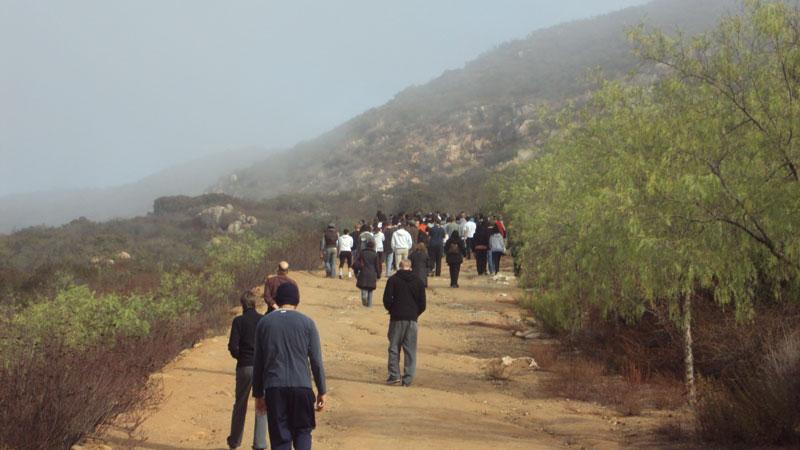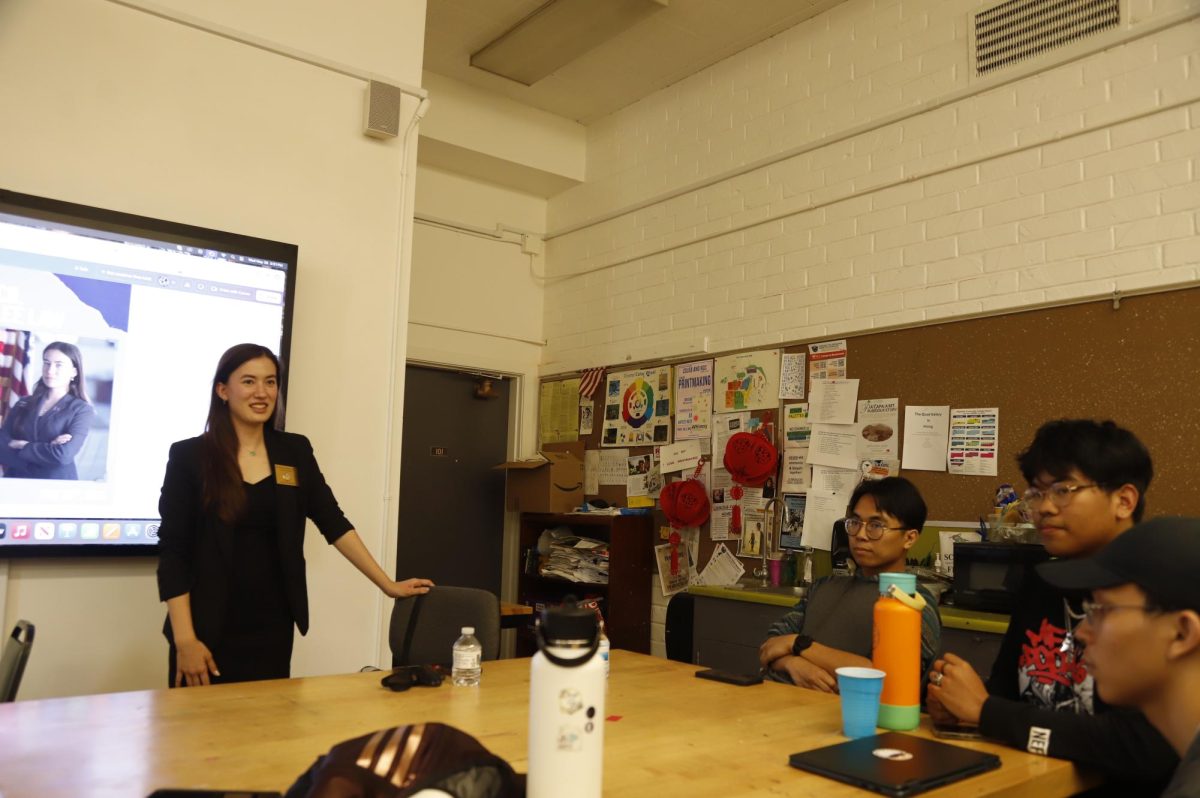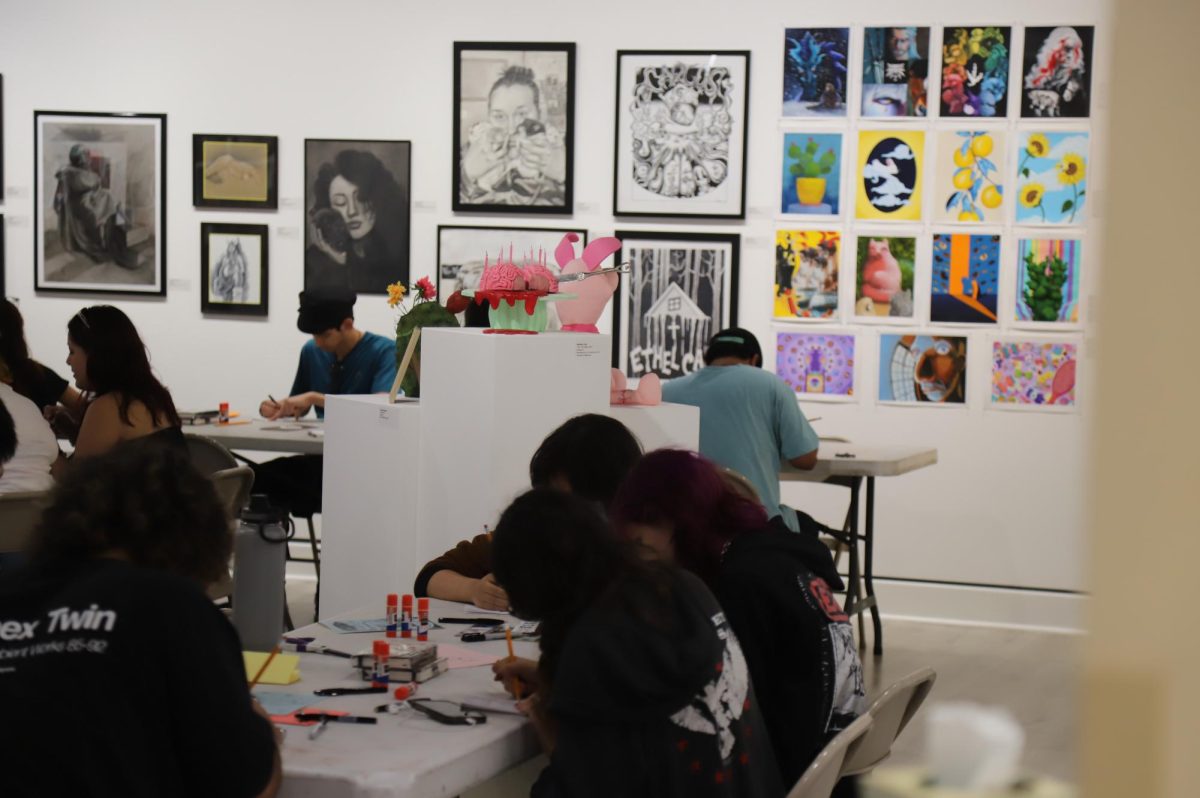By Jackie Adams / Staff Writer

By Jackie Adams / Staff Writer
Cars slowly kick up dust as they crawl through the trees on a single lane road. A sign hanging from a tree announces “You have arrived” to Deerpark Monastery. Carefully cars drive over a speed bump painted with the word “Smile” instead of “Slow”.
Just 10 minutes away from downtown San Diego there is a community hidden in the hills. Buddhist monks and nuns sporting shaved heads and long brown robes, mosey along paths on a 400 acre retreat. They are friendly, young, and surprisingly funny, telling jokes with visitors and even stepping up to ping pong challenges.
At least one day a week they open their home to anyone who wants to come and experience their way of life. Visitors can see where they live eat and pray, where they grow their own vegetables, and the solar panels where they harvest their own energy.
For those curious about Buddhism and the monk’s way of living, they offer overnight retreats several times a year. Visitors are invited to stay anywhere from a weekend to a three month retreat, and even longer if they are interested.
There are enough cabins with bunks and bathrooms to sleep over 100 people comfortably. Or visitors can bring their own tents and sleep under the stars as they learn to conserve electricity, water, and words.
The goal of Deerpark Monastery is to provide a safe place where people can slow down and reflect. In a world that has been described as “dog eat dog”, “rat race”, and “survival of the fittest”, the monastery is a place to learn how to live mindfully, and to practice the art of Sangha, or living as a community.
During meals visitors can practice eating mindfully, as all the meals provided are completely vegan. After eating their tofu and rice or pasta and salad, visitors practice Sangha as they all wash their own dishes, and help with the pots and pans.
To aid in the process of self-reflection, there are no electronics allowed at Deerpark. A weekend without a cell phone may sound crippling to some, but there is a reason for the rule. When all distractions are taken away, when there are no phone’s, laptops, TV, movies, or IPods, it gives people a chance to focus on what’s going on inside themselves. Even talking is discouraged during Noble Silence to allow for inner reflections. It’s a chance for people to pay attention to what thoughts keep reoccurring throughout the day, and figure out what really matters to them.
During retreats songs are taught with lyrics such as, “I wiggle one finger and I am happy,” promoting the idea of finding joy even in the smallest of things.
Dharma discussions are given encouraging visitors to question the habits of their culture and education system. Why do we feel the need to buy the things we do? Do our schools encourage actual long-term learning or just short-term memorization?
Visitors are free to explore the grounds, and there are classes on how to walk mindfully through the hills. Most people walk with the goal of getting where they need to get as quickly as possible, and they don’t really notice what’s going on around them.
At Deerpark students are directed to breathe deeply and live in the moment. To feel their foot as it touches the earth, notice when they pick up one foot, and when they put it down again. To observe the trees and bushes as they’re walking past, and contemplate how long they have been growing there and how they came to be. To essentially slow down and really absorb the life around them.
At Deerpark people are encouraged to slip back into an almost childlike state of mind, and to see the world they live in everyday in a new light.
Just minutes away from a thriving metropolis and top tourist destination, there sits a quiet haven in the hills. While deals are being made in the city, while cars are being bought and commercials are being watched, there are people quietly walking paths lined with swaying bushes and re-learning how to appreciate life.







